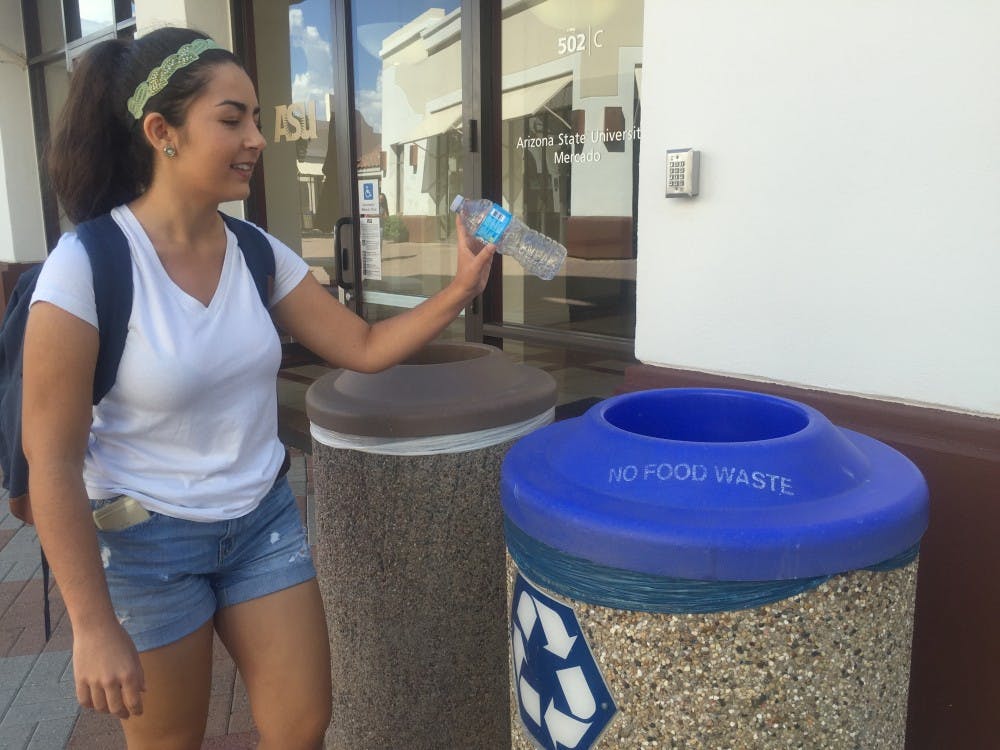Recent environmental and climate change can largely be attributed to the erroneous disposal of garbage, and as one of the largest public universities in the country, ASU has a lot to deal with.
On any given day, thousands of students pass through its four campuses. With such a large student body, a constant supply of solid waste enters into the trash every day.
Source: Kelsey Gaude. Graph displays Arizona State’s contribution to landfills and the amount of waste diverted to recycling.
ASU wants to focus on diversion of waste through systemic approaches, establishing routes for recycling of different materials. One of the largest components of this is the ASU program called Zero Waste.
“The Zero Waste Program refers to this as diversion: recycling, composting, reuse and repurposing, and aversion: the reduction in overall consumption and procurement of materials," Kelsey Gaude, a program manager for Zero Waste, said.
With ASU programs like Zero Waste, there is potential for the contribution to landfills to be significantly reduced.
"An example of [diversion] in action is university property goes through Surplus Property, which is a department that puts the materials back into reuse by selling it out of their store during a monthly auction," Gaude said.
Source: Kelsey Gaude
The proper categorization of trash is crucial to the recycling program. The Co-Mingled Recycling Program provides many different opportunities for recycling a variety of material.
Styrofoam, or Extruded Polystyrene Foam (EPS), for example, cannot be regularly recycled — it has to be handled differently.
"Styrofoam can’t be recycled in co-mingled programs ... It would simply break into small pieces in the truck or at the facility," said Dawn Ratcliffe, City of Tempe Recycling coordinator.
Styrofoam, as well as other materials, takes more energy to recycle and repurpose.
"Types of styrofoam that we are not able to recycle on ASU's campus consist of coffee cups, take out containers and other service ware," said Josh Ellner, a program manager at Zero Waste.
Environmentally sustainable practices extend past just recycling, however.
"Sustainability is more than just the environment. Cultural norms and economic security are very critical components of what sustainability is," said Abigail Graves, student engagement coordinator for the School of Sustainability Student Services.
Small changes to everyday practices can make a difference just one person at a time.
"Sustainability is accessible for everyone," Graves said. "We all can take little steps to limit our consumption, like carrying a water bottle."
For those who are interested, check out the link below to see where and how to dispose of your garbage:
Reach the reporter at zacharyedwards72@gmail.com.
Like The State Press on Facebook and follow @statepress on Twitter.






